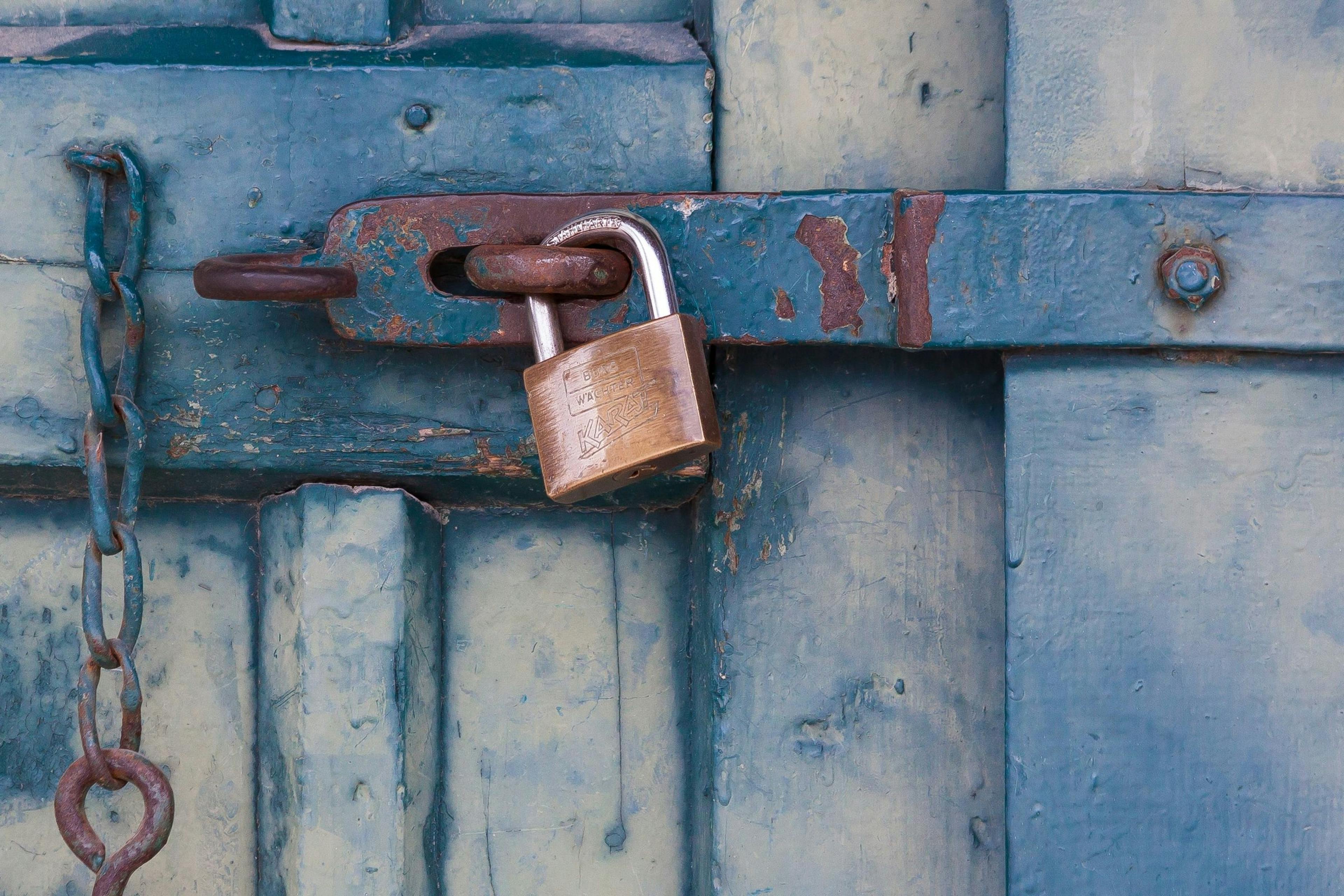
40 things you should not do in Switzerland
There are things you should not do in Switzerland. Knowing these before you travel will save you time, nerves and possibly even money. This list lists mistakes and mishaps that you can easily avoid in Switzerland
It's so easy to make a cultural faux pas. Danger lurks everywhere.
At the train station, in the supermarket, in the mountains…
Wherever you go, you aren’t safe from it.
If you've ever been to Japan and left your slippers at the wrong angle outside the bathroom, or thought in Australia that the directions “just around the corner” meant less than a two-hour drive, you know what we’re talking about.
Even in Switzerland, there are some mistakes just waiting to be made. Some of them are not socially accepted, unnecessarily stretch your budget, cost you overmuch time and nerves, or can simply get on your nerves.
The following list is meant to help you spot a few of these pitfalls early on and make your adventure in Switzerland as enjoyable as possible. So let’s get started on what you should not do in Switzerland:
Traveling by train between 7:00 – 8:00 or 17:00 – 18:00
During rush hours, certain train routes in Switzerland are hopelessly overcrowded. A classic example is undoubtedly the Zurich-Bern or Geneva-Lausanne line. If you want to save yourself a lot of stress and make sure you find a seat for you and your luggage, you should avoid these times for a trip using public transport between larger Swiss cities whenever possible.
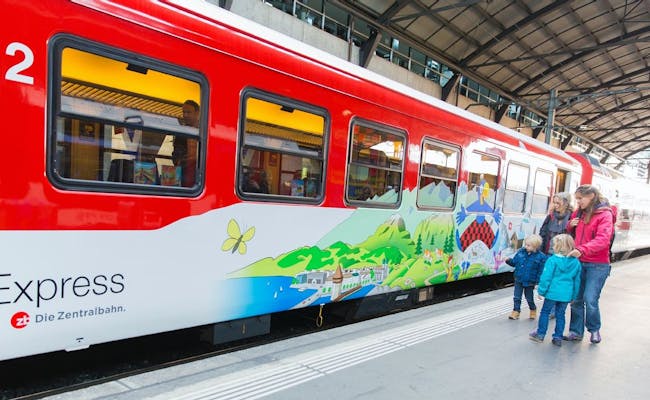 Traveling by train (Photo: Swiss Travel System)
Traveling by train (Photo: Swiss Travel System)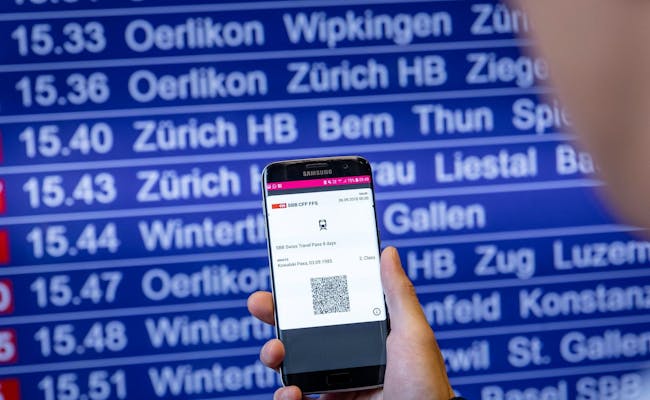 Departure board at the train station (Photo: Swiss Travel System)
Departure board at the train station (Photo: Swiss Travel System)Talking loudly on the train (or bus)
Let's stick to public transport for now. If you want to avoid upsetting the locals, try to postpone any phone calls until after you arrive. Loud conversations in public places aren't very popular in Switzerland.
Talking loudly in restaurants
The same goes for restaurants. Generally, people in Switzerland try to keep noise levels down. It really depends on the venue. Read the room and decide how loud you can be without disturbing others. If you get too loud, expect some disapproving glares.
Thinking the train (or bus) is delayed or waiting for you
Punctuality in Swiss public transport is exceptionally high. Depending on the transport company, the reliability rate is around 90%. So, if you're hoping for a delay to catch your train (or bus), you'll only be successful about 10% of the time. Therefore, it’s best to show up on time at the station or wait for the next connection.
Exploring the mountains in bad shoes
Accidents in the mountains happen quite often. Sometimes they're minor, other times they're fatal. On average, 130 people lose their lives in the Swiss mountains each year. The numbers of serious and minor injuries are much higher. Wearing proper footwear can significantly reduce your risk of a serious accident.
Underestimating the weather in the mountains
Good shoes won't protect you from sudden weather changes. Storms can roll in unexpectedly and very quickly. Visibility can drop to zero, and temperature drops are not uncommon, especially at higher altitudes. Being well-prepared in every aspect can save you from many stressful moments.
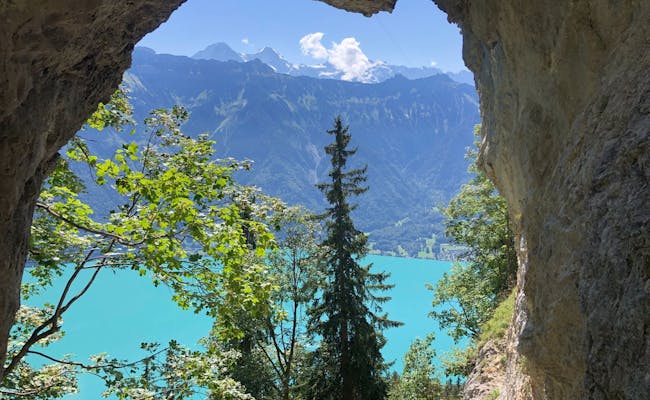 Always wear good hiking shoes in the mountains (Photo: Seraina Zellweger)
Always wear good hiking shoes in the mountains (Photo: Seraina Zellweger)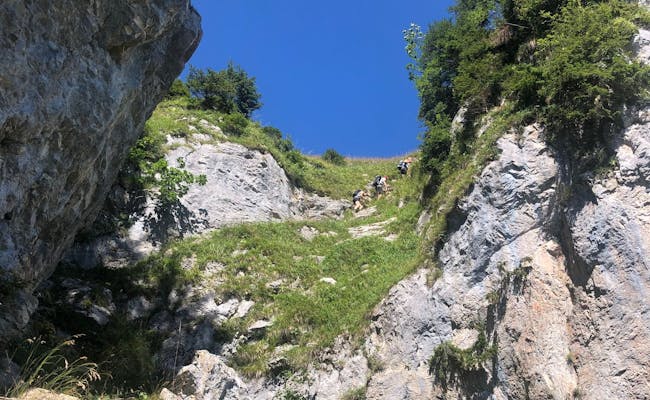 These hiking trails are not suitable for sneakers (Photo: Seraina Zellweger)
These hiking trails are not suitable for sneakers (Photo: Seraina Zellweger)Assuming that every Swiss person speaks fluent German, French, and Italian
Even though every Swiss student has learned at least one additional national language in school, this doesn’t mean they master it perfectly. There is a basic knowledge, but we’re definitely not all flawless trilingual speakers. Unfortunately. 🙂 English has become very common, though. Even if not all Swiss speak English, you can usually get by pretty easily in most places with it.
Not weighing the vegetables or fruits in the supermarket
In Swiss supermarkets, you usually have to weigh the vegetables and fruits yourself. Just remember the corresponding number, place the vegetables or fruits on the scale, enter the number, and stick the label on. If you forget, there’s usually a scale near the checkout so you can take care of it then.
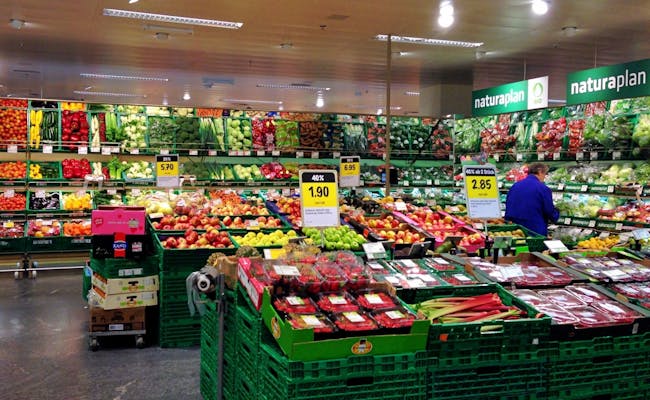 Vegetable department in the supermarket (Photo: Seraina Zellweger)
Vegetable department in the supermarket (Photo: Seraina Zellweger) Weigh your vegetables yourself in the supermarket (Photo: Seraina Zellweger)
Weigh your vegetables yourself in the supermarket (Photo: Seraina Zellweger)Grocery Shopping on Saturday
On Saturdays, it feels like the whole of Switzerland is doing its weekly shopping, as the risk of starving on Sunday is real (see the next point). So, we suggest that you don’t have to do a big grocery shop specifically on Saturday. During the week, you’ll find a bit more peace and space for yourself between the aisles.
Grocery Shopping on Sunday
Sunday is a day of rest. Except at train stations, all shops are closed all day.
Spending a Lot of Money on Water
Switzerland is blessed with high-quality tap water that's readily available everywhere. It's worth having a water bottle with you and filling it up at one of the thousands of public fountains. This way, you can save money on your trip in Switzerland.
As long as there’s no sign saying “no drinking water”, you can drink the water without worry. Theoretically, you could even fill your bottle in the bathroom. It’s not exactly practical, but in Switzerland, toilets are indeed flushed with drinking water.
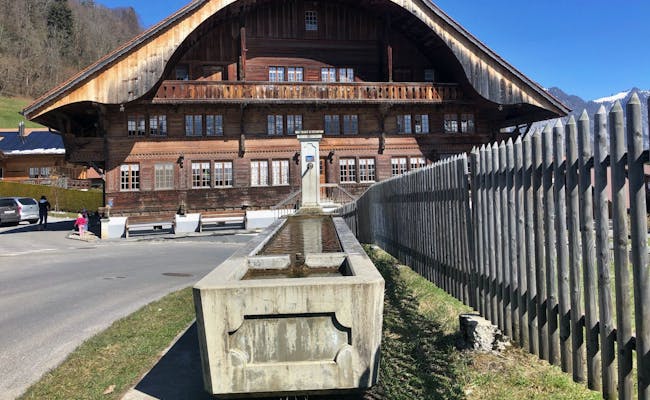 Fill your bottle with free drinking water (Photo: Seraina Zellweger)
Fill your bottle with free drinking water (Photo: Seraina Zellweger) In Switzerland, there are thousands of public fountains (Photo: Seraina Zellweger)
In Switzerland, there are thousands of public fountains (Photo: Seraina Zellweger)Traveling by Public Transport Without Installing the SBB App
If you frequently use public transport, we recommend downloading this incredibly helpful app. Whether you’re looking for the next train connection from the airport to Bern, the departure time for the passenger boat from Thun to Interlaken, or the bus from Solothurn to Langendorf, the SBB App can provide you with all the info you need. It also has details on train tickets in Switzerland, the facilities at train stations, and the availability of discount tickets.
Assuming the Whole of Switzerland is Covered in Snow in Winter
If you’re coming to Switzerland expecting to see meters of snow, you might be in for a big disappointment. Climate change affects us too, and snowfall is not as reliable as it was 10-20 years ago.
If you’re staying in lower altitudes during winter and want to enjoy some time in the snow, you’ll likely find what you’re looking for in higher-altitude towns. So, if you don’t see any snow when you land in Zurich in January, don’t lose hope just yet.
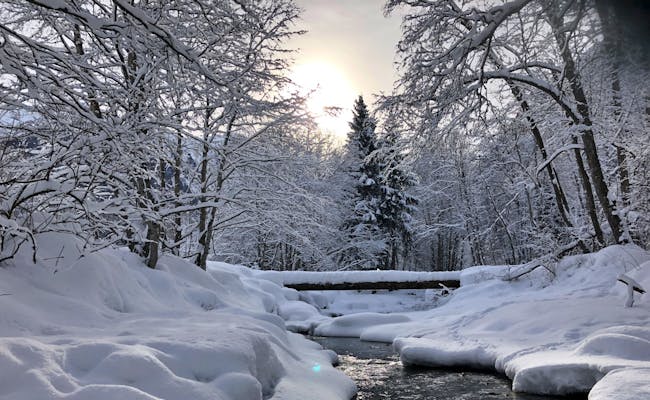 Winter in Switzerland (Photo: Seraina Zellweger)
Winter in Switzerland (Photo: Seraina Zellweger) In winter, especially at higher altitudes, there is snow (Photo: Seraina Zellweger)
In winter, especially at higher altitudes, there is snow (Photo: Seraina Zellweger)Thinking you can see the whole of Switzerland in three days
Admittedly, Switzerland is small. Very small. It can fit a staggering 8.5 times in Germany, 67 times in Argentina, and an incredible 414 times in Russia. However, if you think a few days are enough to explore all of Switzerland, you're sorely mistaken.
The diversity of this little country is immense. Even though the distances between various sights are relatively tiny, the Riviera in Ticino is nothing like the rock formations of the Bernese Jura or the winding Rhine around Schaffhausen. So take your time to uncover the full variety that Switzerland has to offer. We’re here to help you plan your itinerary through Switzerland.
Only traveling to Interlaken
We admit it. The region around Interlaken is incredibly beautiful and offers a lot, including the Jungfraujoch and the Lake Thun. But there are countless other places in Switzerland that are just as stunning and often far less crowded with tourists. So, try to include more stops in your trip.
Being Late
What applies to public transport holds true in Switzerland in general. Punctuality is taken very seriously, and if you have an appointment, it’s best to stick to it as much as possible. You wouldn’t expect anything different in a country famous for its watchmaking industry, right?
Buying Drinks at the Train Station
If you find yourself thirsty at the train station and don’t have a water bottle with you, takeaway stands or kiosks can be real money traps. They often charge you three times what you would normally pay. Since you can usually find a supermarket like Migrolino or Coop Pronto at any major train station, you should opt for those to buy a drink at a regular price.
Eating Too Much Before Visiting a Chocolate Factory
Switzerland has various chocolate factories with visitor centers you can explore in person. They don’t hold back on tasting options either. So, if you show up with a full stomach, you’ll regret it at the chocolate fountain. The same goes for the Kambly factory in Trubschachen. Make sure to leave some room in your stomach when you go on a culinary adventure.
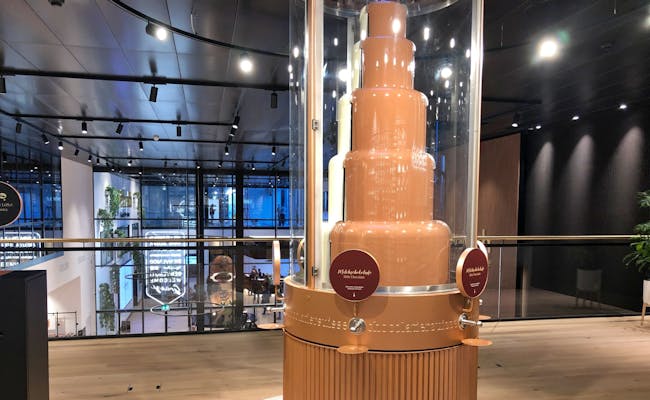 Chocolate factory in Switzerland (Photo: Seraina Zellweger)
Chocolate factory in Switzerland (Photo: Seraina Zellweger)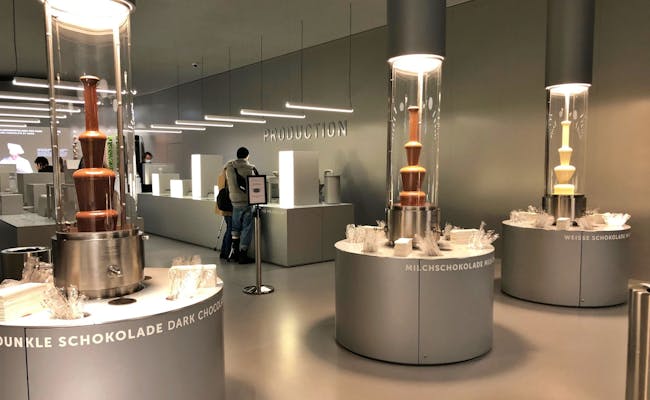 Chocolate fountain at Lindt (Photo: Seraina Zellweger)
Chocolate fountain at Lindt (Photo: Seraina Zellweger)Cutting in line, no matter where
Even though we Swiss don't have the same queuing culture as the Brits – some might say we have no clue how to queue properly – cutting in line is still not well-received. Whether it’s at the checkout in the supermarket, at the train station after the train arrives, or in the ski area at the valley station, it’s better to take a deep breath and step back if you're unsure.
Sitting down in a train without asking if the seat is free
When you think about it for a minute, this tradition doesn’t make much sense. But it’s just how we grow up. When we get on a train and sit next to someone, we always ask if the seat is free. Even if the person got on at the same station as us and is obviously sitting alone in the compartment. The “is this seat free?” is as much a part of public transport in Switzerland as the Sphinx is at Jungfraujoch.
Washing clothes or doing housework on a Sunday
As mentioned regarding store opening hours: Sunday is a day of rest. This applies to laundry and housework as well. In apartment buildings with a shared laundry room, it’s even forbidden to do laundry on Sundays. You should also avoid vacuuming on the seventh day if you don't want to risk a dispute with your neighbors.
Eating a St. Gallen bratwurst with mustard
It’s a well-known fact: In St. Gallen, you eat a bratwurst WITHOUT mustard. In the rest of Switzerland, there can be debate about this. But in Eastern Switzerland, it's such a strong unwritten rule that it can practically be considered a written one. The reasoning: A St. Gallen bratwurst is so good it doesn’t need mustard.
Starting a discussion about whether the cheese belongs on the potatoes or beside them during raclette
Raclette is a typical Swiss specialty you should definitely try when you're here. But it might be best not to ask your Swiss friends whether they put the cheese on or beside the potatoes. That can spark a heated debate, even if it seems a bit silly. However, if you want to enjoy a peaceful evening without stressful discussions, better ask them whether they grew up as a Migros kid or a Coop kid.
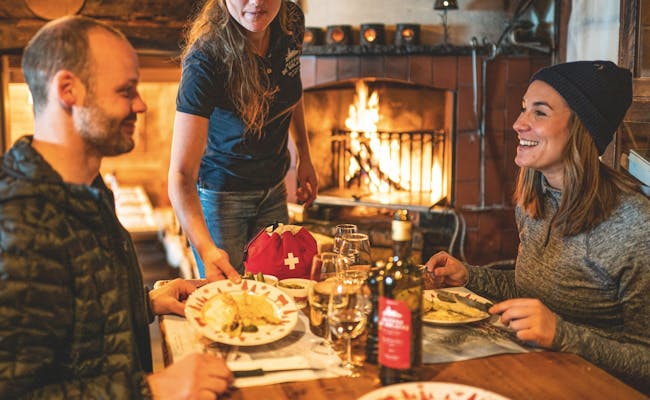 Raclette in Switzerland (Photo: Switzerland Tourism André Meier)
Raclette in Switzerland (Photo: Switzerland Tourism André Meier)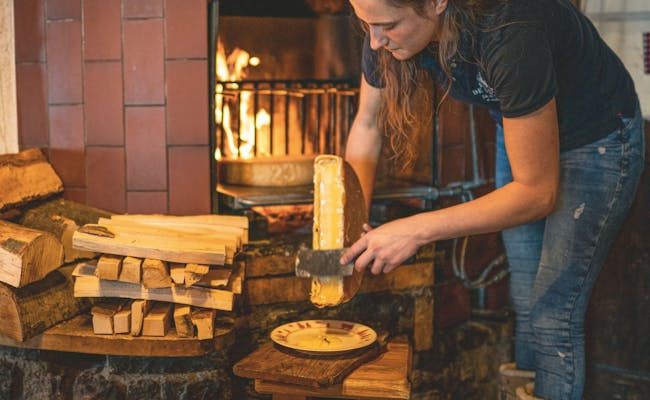 Raclette (Photo: Switzerland Tourism André Meier)
Raclette (Photo: Switzerland Tourism André Meier)Entering a stranger's house without taking off your shoes
No matter if your host cleans the apartment daily or hasn't touched a vacuum cleaner in two months: In Switzerland, it is generally expected that you take off your shoes when entering someone's home. Unless your host explicitly says that you can keep your shoes on.
Waiting for help without asking anyone if you have lost your way
In many countries, it’s enough to stand confused at a crossroads and helplessly gaze around to get offered support. This might happen in Switzerland at times, but it's quite rare. So if you need help or directions, it’s best to just ask.
Carrying all your luggage during a city layover
Since Switzerland is so small and compact, you might come across an interesting place while traveling from A to B. For instance, you can travel from Zurich to Geneva and make a stop in Bern. You might hesitate to do so because you're traveling with two suitcases and three backpacks. Fortunately, all SBB train stations are well-equipped with lockers. This way, you can store your luggage for a fee while you explore.
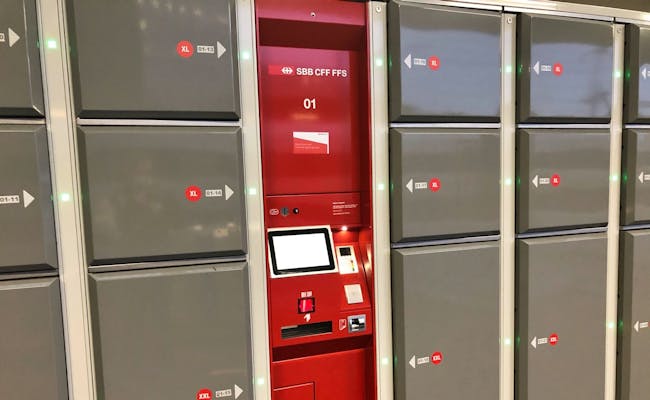 Lockers at the train station (Photo: Seraina Zellweger)
Lockers at the train station (Photo: Seraina Zellweger)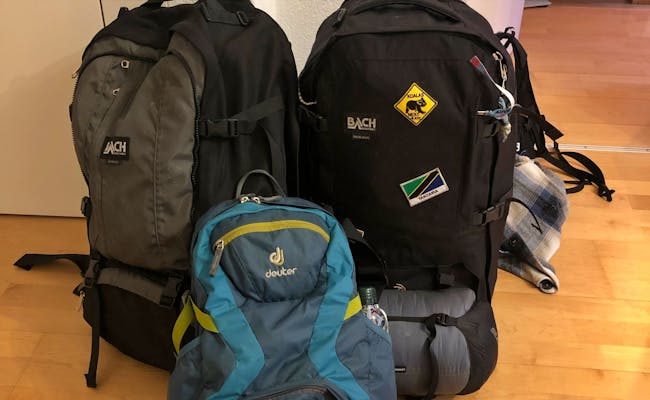 Store your luggage during your discovery tour
Store your luggage during your discovery tourSpeeding
Our friends from nearby countries are often shocked at how expensive speeding can be on Swiss roads. The fines vary significantly depending on whether you're driving in the city, out in the countryside, or on the highway; you’ll either pay more or less. However, the amounts can range from 40 CHF up to 250 CHF. For serious violations, it can even be more, all the way to a prison sentence. So think carefully about how urgent your journey really is.
Buying chocolate before Easter or Christmas
Chocolate is sold in large quantities all year round throughout Switzerland. But the selection is never as diverse as it is before Easter and Christmas. Prices can fluctuate greatly based on demand. So if you can hold off, it’s definitely worth it to postpone your big shopping trip until after the holidays.
Supermarkets try to clear out all kinds of chocolate treats for half price or even less shortly after the holidays.
Thinking that Swiss German and German are the same
If you're wondering what on earth kind of German is spoken here, let us clarify it for you. Swiss German isn't exactly a language, but rather a collection of Alemannic dialects. No one, not even the Linguistic Institute of Zurich, dares to put a number on how many there are since the boundaries between the different dialects are quite blurred. Sometimes, just 10 km can be enough for a different dialect to be spoken.
It's clear that someone who speaks standard German fluently might find themselves pretty frustrated during their first visit to Switzerland because they won't understand much. Even though Swiss Germans all understand standard German and it's one of the four official written languages, it's rarely used in everyday life.
Leaving trash behind
We probably don’t need to tell you this, but it’s still worth mentioning. Especially in nature, but also in cities, on trains, or in public places, there’s no reason to leave your trash lying around. In most cases, you won’t have to search long to find a trash bin. Switzerland is very well-equipped in that regard.
Going out without checking the weather report
You plan an outing, look out the window, and think: “Great, the sun is shining!” Don’t be fooled by that. The weather in Switzerland is seldom consistent. So if you want to make sure you don’t encounter any nasty surprises at your destination, take a quick look at the weather report beforehand.
The same goes the other way around. If it’s raining or overcast where you are, it could still be that the weather is much better not too far away. A good tip is Ticino. Often, but not always, it can be raining all over Switzerland while the sun is shining in Ticino.
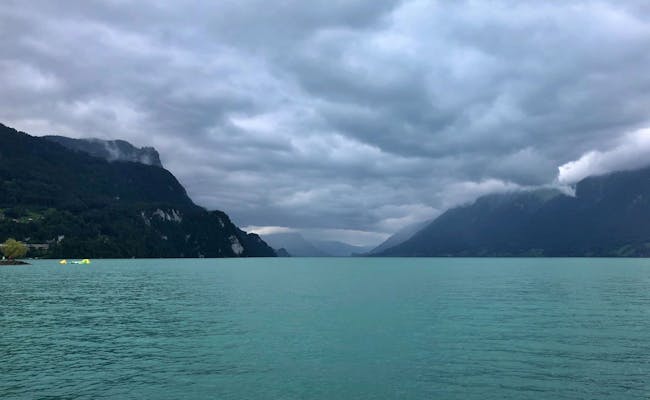 Mixed weather at Lake Brienz (Photo: Seraina Zellweger)
Mixed weather at Lake Brienz (Photo: Seraina Zellweger) Rain in St. Gallen (Photo: Seraina Zellweger)
Rain in St. Gallen (Photo: Seraina Zellweger)Traveling on Public Transport without a Train Pass
Getting around on public transport in Switzerland can get expensive. A ticket from Zurich to Bern will cost you a hefty 51 CHF without any discounts. Therefore, if you plan to make several train journeys, it’s worth checking out the various train passes for tourists, discounted tickets, or other tourist offers. Especially if you're covering longer distances by train, for instance, the Swiss Travel Pass could be a good option.
Thinking that Switzerland only has cheese and chocolate to eat
Admittedly, Swiss chocolate and Swiss cheese are famous worldwide—literally. However, we don’t spend the whole day eating chocolate and cheese, and you shouldn't either. Unless your goal is to try all 450+ types of cheese during your stay.
Otherwise, there are plenty of other Swiss specialties that you're sure to love. Whether it's crispy rösti with a fried egg and sausage, delicious Zürcher geschnetzeltes with spätzli, a healthy bircher muesli, or spicy capuns from the Graubünden region.
 St. Gallen Sausage (Photo: MySwitzerland)
St. Gallen Sausage (Photo: MySwitzerland) Capuns (Photo: MySwitzerland)
Capuns (Photo: MySwitzerland)Paying with a currency other than Swiss Francs
Switzerland isn't part of the European Union, so the Euro isn't used as a payment method here. Our currency is the Swiss Franc (CHF), and it's accepted all over the country. Although you can theoretically pay with Euros in most places, we recommend using Swiss Francs instead. The exchange rate to Euros offered in supermarkets or ticket machines is often quite unfavorable. With bank apps like Revolut, you can benefit from low fees and good exchange rates. This way, you can save money in Switzerland.
Your first time on the slopes without a ski instructor
It looks so easy: put on your shoes, strap on the skis, and hit the slopes. But let us tell you, it definitely looks easier than it actually is. Your legs tend to want to go in a completely different direction than your head. If you've never been on the slopes before, we recommend spending the first few hours with a ski instructor. After that, you'll know the key tips and tricks, and you can build on that knowledge on your own. The same goes if you decide to go snowboarding.
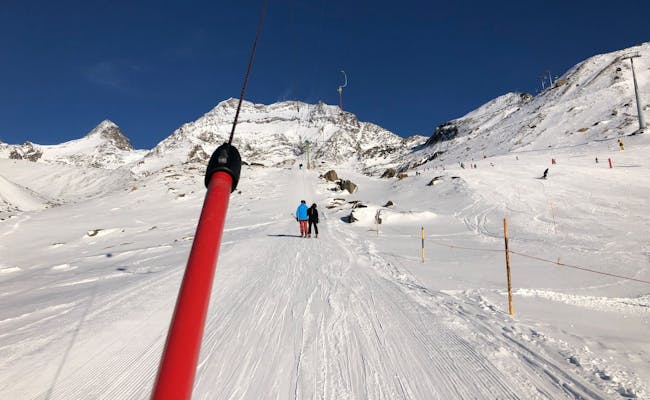 Skiing in Switzerland (Photo: Seraina Zellweger)
Skiing in Switzerland (Photo: Seraina Zellweger)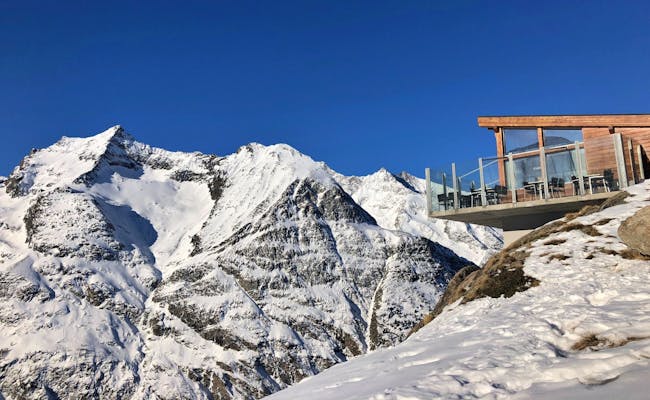 Winter in Hohsaas in Valais (Photo: Seraina Zellweger)
Winter in Hohsaas in Valais (Photo: Seraina Zellweger)Sledding Without a Helmet
Every year in Switzerland, there are about 10,000 sledding accidents. This often leads to concussions, which can have dangerous consequences. The accident prevention advisory service recommends wearing a helmet while sledding.
Swiss People Asking How Much They Earn
In some cultures, talking about money is common and discussed openly. Everyone knows how much their friends earn and own. In Switzerland, however, it’s a bit of a taboo subject. There’s a saying that goes: “You don’t talk about money, you just have it.” You can think what you want about that. But if you want to strike up a casual conversation with a Swiss, it’s best to avoid starting with the question: “So, how much do you earn?”
Swiss People Asking About Their Voting Decisions from Last Weekend
Here’s another question to steer clear of… In Switzerland, voting takes place four times a year. Whether it’s on public initiatives, changes in legislation, or the election of government officials, these events often spark heated debates, even among family and friends. If you’re not particularly close to someone, it’s advisable to refrain from asking them about their voting choices.
Leaving Switzerland Without Trying "Böötle"
It has almost become a new national pastime: "Böötle". The concept is simple. You wait for a beautiful, sunny summer day, grab an inflatable watercraft like a unicorn, a rubber boat, a flamingo, or an air mattress, find a river, and let the current carry you downstream.
The most famous spot for this is definitely the Aare between Thun and Bern. But during summer, you’ll find plenty of unicorn floaters with a beer in hand all over Switzerland. So if you want to “go with the flow”, give it a try when you get the chance.
Forgetting to Say Hi While Hiking
In Switzerland, it's common to greet each other while hiking. Whether it's Hello, Bonjour, Grüezi, Buongiorno, or Bun dì, it depends on which part of Switzerland you find yourself in. So, if you're hiking on one of the over 60,000 km of trails, you'll make someone else's day by giving them a friendly greeting. This is especially appreciated when the paths get narrow and you both need to make room for each other. Just staring at the ground and walking silently by doesn't go down well with the Swiss.
These are our 40 things you shouldn't do in Switzerland. We hope we've helped you prepare for your trip and avoid a few social missteps.
Discover leisure activities
Book NowTop Destinations
Top Activities
